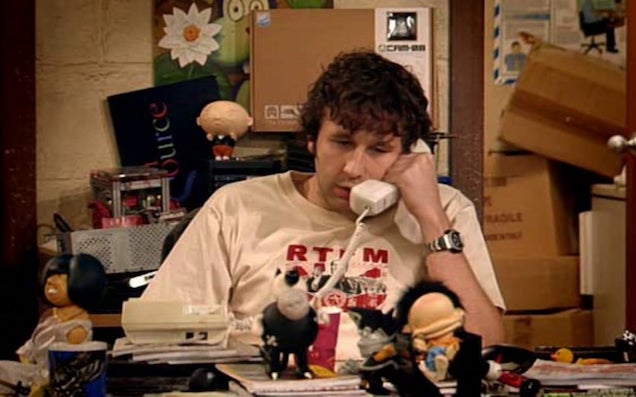
Like the sun rises in the morning, some fresh new scams have been doing the rounds, but luckily, these ones are pretty easy to pick.
A heap of people – myself included – have been copping overseas phone calls from countries like Guinea, Slovenia or Cuba, but they don’t let it ring long enough for you to pick up because the trick is getting you to call back.

If you do decide to give them a buzz back, you’ll be charged a ton for it and they’ll get a cut.
“If you call them back the call will be charged at a very high rate and a large percentage of that cost will be transferred to them so they’ll get the money,” Australian Competition and Consumer Commission‘s (ACCC) Delia Rickard told Hack.
“You’ll often find either that you get music playing, or you’re on hold, or the person will have language problems or they’ll chat to you just to keep you on the phone as long as possible.”
It’s all part of a massive international scam they call “Wangiri“, which is a Japanese word that translates to “one cut”. The ACCC reckons Aussies copped about 2,000 of these calls last year and clearly, they’re still giving it a red hot crack.
Obviously, the best course of action is just to ignore the calls altogether. If you are expecting a call from someone who happens to be in the country the call is coming from, it’s probably best to double check their number via another medium like Facebook Messenger or WhatsApp before calling back.
According to Scamwatch, almost 40 per cent of scams in Australia are carried out over the phone, followed by email at 26.5 per cent, and text messages at 15 per cent.
“[Phone calls are] so easy, it’s very cheap and in countries where labour is cheaper, you’ve got whole call centres devoted to doing these sort of scam calls and I think that personal touch gives them a greater likelihood of getting more victims,” said Rickard.
There’s a few other scammy assholes getting around the phone lines at the moment, so you need to be vigilant with unknown numbers. Here’s some things to look out for, according to Rickard.
- They might claim to be from a software company like Microsoft or Telstra wanting to get access to your computer. Unless you’ve already been in contact with the company, they wouldn’t call out of the blue and ask to get on your bloody computer. The best way to check is to ask them for a reference number and call the company back on a legitimate number listed on their website.
- The call quality probably sounds like total ass.
- They might say they’re calling from a government agency and request that bills be paid in pre-paid gift cards, like iTunes cards. C’mon, don’t fall for this one. No government body wants to be paid in iTunes cards.
- The caller might be really pushy or use inappropriate language to coerce you into paying.
- If they ask for financial details like banking details or credit card numbers, never hand them over.
At the end of the day, these assholes are usually pretty easy to identify, but it never hurts to keep up to date with their tactics. Stay safe, folks.







